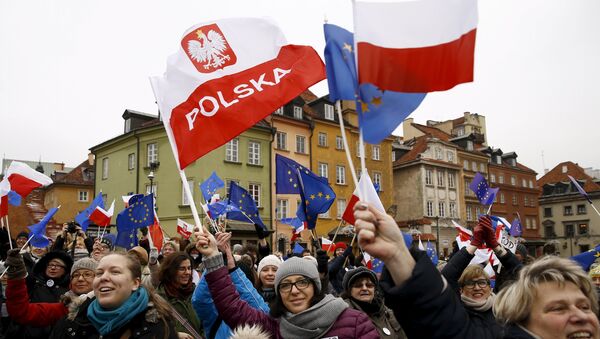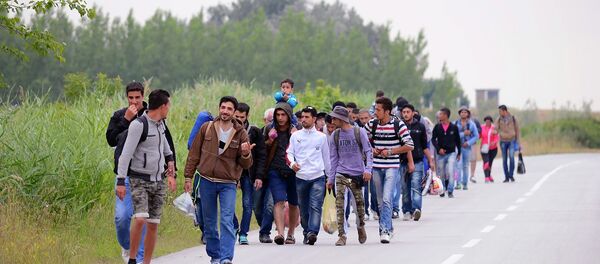The national-conservative PiS party has been in power since 2015. In Sunday’s local legislative elections, the party secured 254 mandates, as confirmed by the Polish Election Commission on Thursday. PiS’ main rivals, the opposition liberal Civic Platform and Nowoczesna (Modern) parties, received 194 mandates, while the agrarian and Christian democratic Polish People’s Party gained 70 seats in local legislatures.
Though PiS party won more votes than any other party, it experienced vote losses in urban areas and lost the mayor election in Warsaw, where PiS' Patryk Jaki received only 28.53 percent, while Rafal Trzaskowski, the candidate of the Civic Platform and Nowoczesna parties, gained 56.67 percent.
Divided Country
According to Christian Lequesne, a researcher at the Paris Institute of Political Studies (Science Po), the local elections exposed a divide between rural residents, who are largely supportive of the PiS program, and urban liberals, voting for opposition.
Nicolas Leron, the founder of the Paris-based EuroCite think tank, agreed that there was a huge gap — "well-known in Eastern Europe" — between large urban centers and the peripheries in Poland.
He suggested that it was unequal economic development, with big metropolises enjoying benefits of globalization and rural areas feeling left behind and struggling with high unemployment, that defined people’s political preferences.
"I think it’s firstly the issue of economic regulation of globalization that could be accelerated in Europe because of the internal EU market. It’s the global tendency that benefits the large urban centers … And small cities have lost their industries, unemployment is high, and above that there is a sentiment of cultural downgrading … I think it is mostly related to economic and territorial downgrading, these territories are disconnected to what’s going on in the world," Leron said.
EU, Poland Row Could Impact PiS Support
The expert noted that the ruling PiS party still scored a good result, even though it was more modest than they expected.
Over recent years, the Polish government has indeed been entangled in conflict with the European Commission, which sees the former's judicial reforms as violation of EU laws on judicial independence and has begun an infringement procedure against Warsaw.
"At a given moment they go too far, and a part of population, notably in the big cities, urban, educated people, part of whom was probably seduced by these parties, start turning away from them, or the indifferent people who did not vote end up by mobilizing and voting against those parties … When it goes too far people start disagreeing. They feel that it puts their country, their personal life in danger. They feel that their country can take a bad path which will lead to them leaving the EU. And people are committed to the membership in the EU, with all the flaws that it may have," Leron pointed out.
The recent PiS loss in the vote in the country’s capital and modest results in urban areas therefore could make it more challenging for PiS to retain its positions in the 2019 parliamentary election and 2020 presidential vote.



